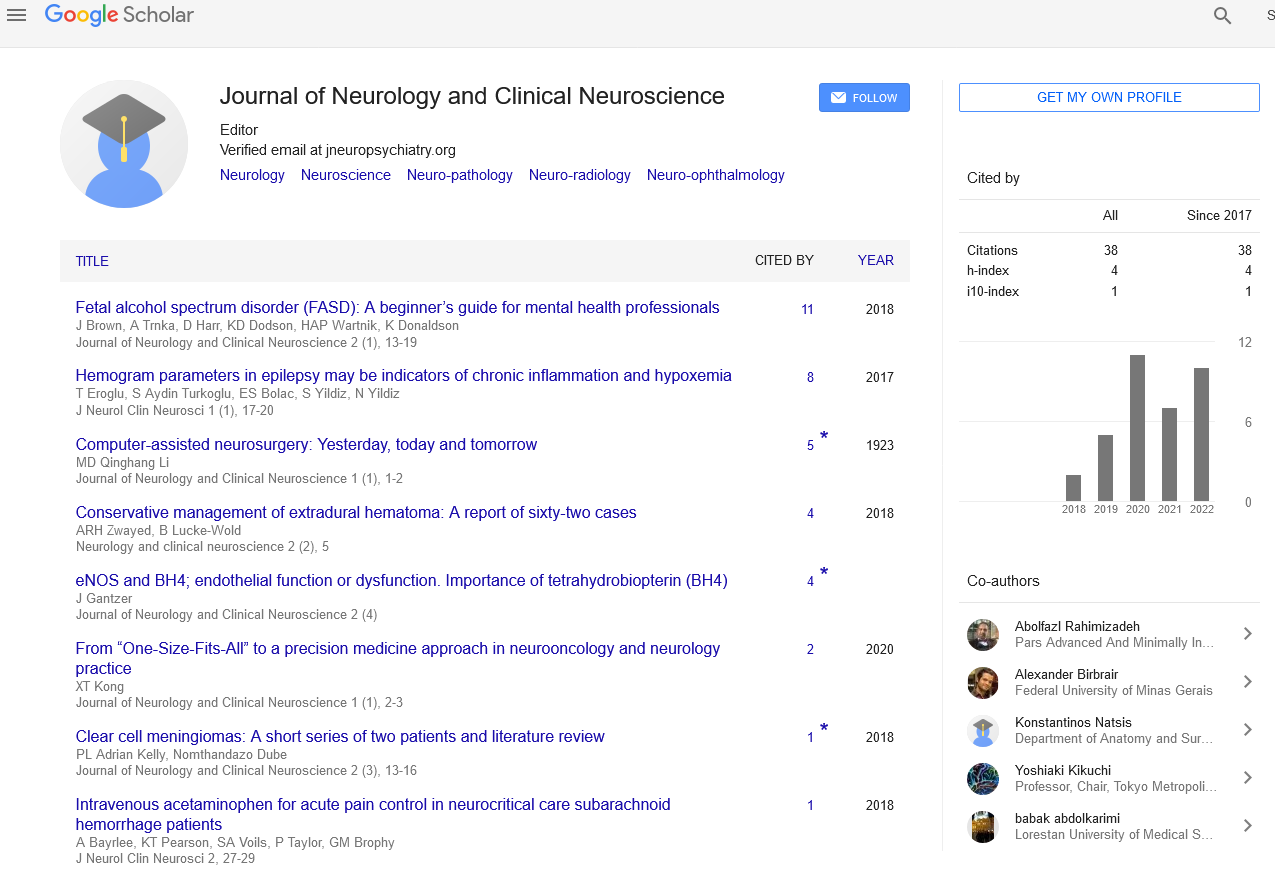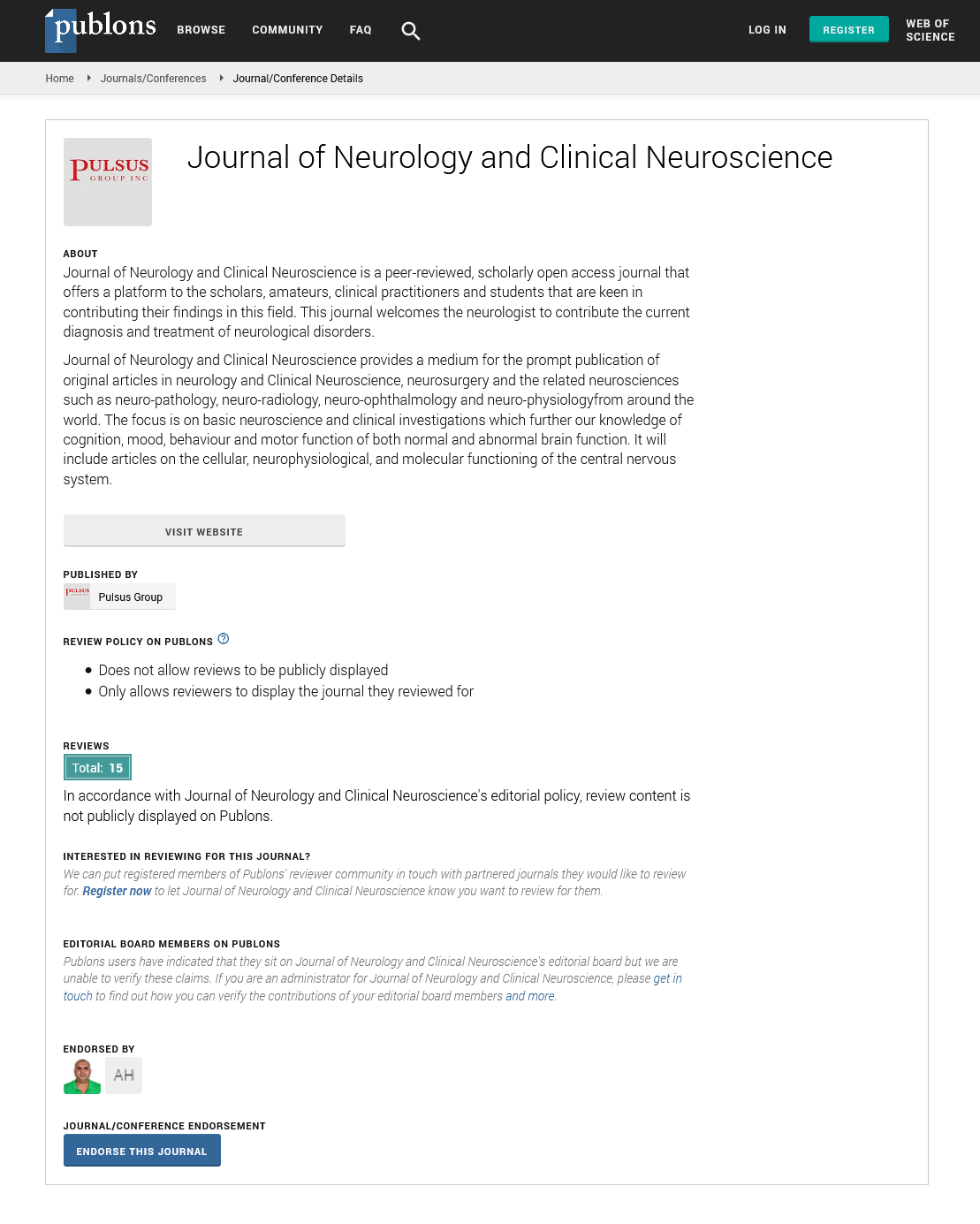Sign up for email alert when new content gets added: Sign up
The Q58L mutation of the androgen receptor (AR) gene as possible cause of early Kennedy disease
10th International conference on Parkinson's and Movement Disorders
July 08, 2022 | Webinar
Marco Cassone
Hospital Major of Modica Nino Baglieri, Italy
ScientificTracks Abstracts: J Neurol Clin Neurosci
Abstract :
Introduction: In this work a severe neuromuscular disease unexplained for years due to a missense mutation in the AR gene, found in an Italian male patient of 28 years with Sardinian origin. This case would broaden the genotype-phenotype correlation of the AR gene mutations, furthermore it would change the opinion that only expansion mutations can cause Kennedy’s disease. Materials and Methods: Detailed clinical history (table 1), whole exome and whole genome sequencing of proband and parents DNA. Skin biopsy in the proband and the unaffected father to obtain and isolate fibroblasts. Fibroblasts were cultured and used as model to discriminate cells with the mutation from those without mutation. To evaluate AR mRNA expression, total RNA was extracted and analyzed by Real Time RT-PCR. AR protein was detected by a specific antibody to study the immunolocalization in the patient fibroblasts and in control fibroblasts. Results: Genome sequencing detected pathogenic mutations c.173 A>T, p.Q58L within AR gene, already described and associated with androgen insensitivity syndrome, which potentially explains the patient's clinical features. The expression analysis conducted using fibroblast from proband and father on total RNA extracts for Real Time RT PCR, shows a lower expression of the AR transcript in the patient's cells compared to the wild type father’s cells, the same result was found by immunolocalization of the AR protein, in fact the proband's fibroblasts showed a very low presence of the AR protein compared with normal presence in the father's cells. Conclusions: The association between phenotype and genotype was hypothesized on the basis of the symptomatology, which appeared to be a severe and earlier form of Kennedy's disease, on the basis of the mutation, which had already been described in literature and associated with androgen insensitivity syndrome and at the end on the basis of expression analysis.. Recent Publications: Cassone M, Fiorillo C, Zara F, Vitali C. New phenotype caused by POMGNT2 mutations. BMJ Case Rep. 2021 Jul 22;14(7):e242358. doi: 10.1136/bcr-2021-242358. PMID: 34301702; PMCID: PMC8728375
Biography :
Marco Cassone is a Clinical Geneticist who focused his studies on the molecular basis of rare diseases, especially neuromuscular disorder. Oncogenetics, prenatal diagnosis, dysmorphology, neurogenetics are the fields in which he spent most time and efforts. In the last years he assisted about 2000 new-borns after birth and performed hundred paediatric and genetics consultations. He is a clinical geneticist with an excellent experience in molecular biology; moreover he has a lot of skills regarding paediatric and neonatology. Currently his dream is to develop personalized medicine for clinical use. Currently he works in a public hospital in the south of Sicily and collaborates with an important genetic laboratory in America.





